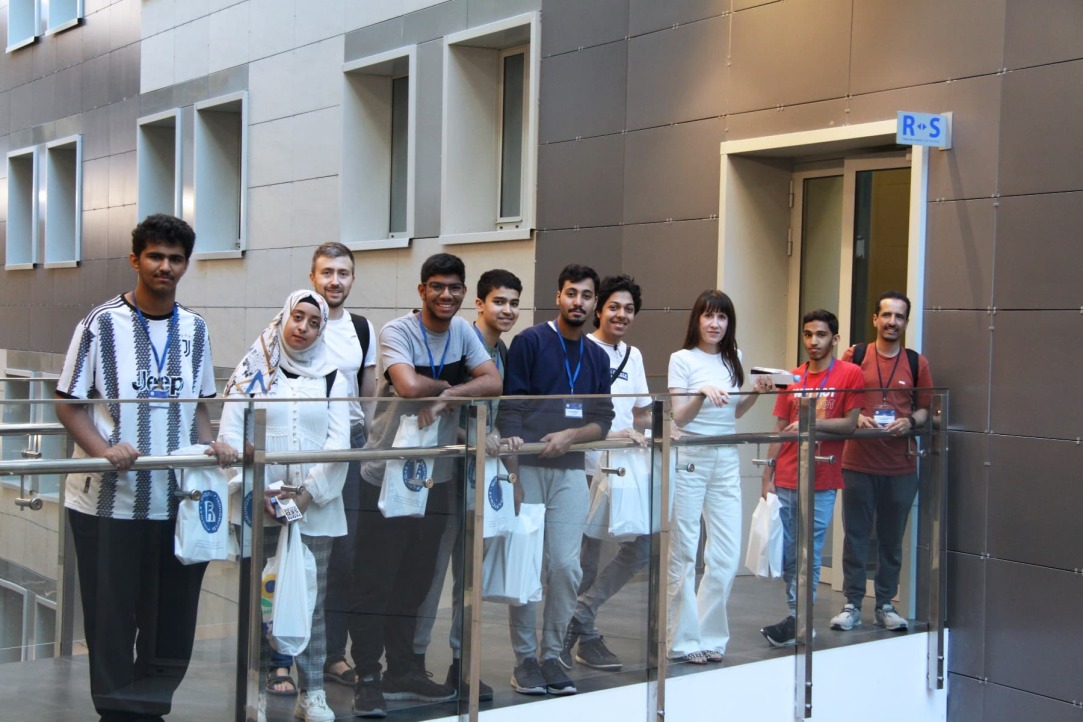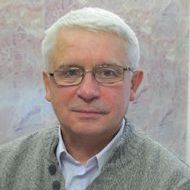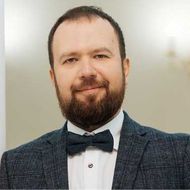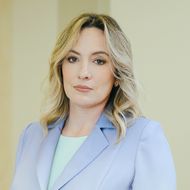The Saudi Arabian National Team, Medal Winners at the International Physics Olympiad, Trained at HSE University

At the recent International Physics Olympiad (IPhO 2024) in Iran, students from Saudi Arabia achieved the best results in their country's history, winning one silver and three bronze medals. The team from the Kingdom made their first visit to Russia to receive their final training at the HSE Faculty of Physics.
In late June 2024, HSE University hosted the national physics team from Saudi Arabia for the first time. For 10 consecutive days, intensive training sessions were held for 15 students, covering both theoretical and practical aspects.

Mikhail Trunin
The professors of the HSE Faculty of Physics, including Aleksandr Kiselev and Alexey Noyan, have extensive experience in effectively preparing students for international physics competitions. Apart from that, the faculty has unique student laboratories where gifted students from the Kingdom of Saudi Arabia were trained for the experimental round of IPhO 2024, notes Mikhail Trunin, Dean of the HSE Faculty of Physics.

Alexander Ponomarev
‘The quality of education at our faculty is among the best in the country,’ says Alexander Ponomarev, Deputy Dean of the Faculty of Physics. ‘The level of graduation projects by our physics students clearly confirms this. We use our teaching experience, as well as modern laboratory equipment, to ensure the highest standard of instruction during this intensive training,’
In addition to theoretical and practical classes, HSE University organised an excursion programme for Saudi students, with the assistance of HSE student volunteers. During their only day off, the Saudi guests visited the Russia Expo at VDNH in Moscow and took a tour of the Atom pavilion. They also explored the HSE University’s campus on Pokrovsky Bulvar, one of the most modern university complexes in Russia.
Team members from Saudi Arabia shared their impressions of the training programme, the university, and their trip to Russia.
Wesam Al-Qanbar
‘The course was very useful. I was able to tackle experimental tasks with ideas and solutions that I had not encountered before. The training was also different from other programmes. For example, there were no time limits for completing tasks, which allowed us to think deeply about the concepts and tasks themselves. Almost every day, we would go outside and engage in activities such as visiting famous landmarks and enjoying nature. This helped to clear our minds and give us energy for the following day.
This was my first trip to Russia, and I was glad that Moscow was the first city I got to visit. I can say that Muscovites take great care of their city’s appearance. The buildings have beautiful facades, and the roads are cleaned and well-maintained. The metro is in excellent condition, and there are plenty of green spaces, parks, and trees everywhere, even in the centre of the city. Moscow and HSE University have stunning architecture. The people here are pleasant, friendly, and always ready to help. The city feels completely safe. If given the chance, I would definitely return.’
Faris Al-Ghamdi
‘The training course played an important role in enhancing my experimental skills and reignited my interest in physics. This was my first visit to this remarkable city, and I thoroughly enjoyed it. I am looking forward to returning to Moscow next year to train for the Olympiad at this wonderful university.’
Hussain Al-Saleh
‘This was my first visit to Moscow and Russia, and everything was amazing. I would love to return to Moscow and visit HSE University again in the future. The course was both challenging and rewarding, and I gained valuable knowledge in practical physics.’
Reda Al-Khalaf
‘My trip to Moscow for the training course was a new experience, and to be honest, it was overwhelming. The city's architecture is magnificent, and the natural beauty is breath-taking. The training programme was demanding, but overall, I gained a lot of knowledge. My experience at HSE University was wonderful, and I would be more than happy to train there again.’
The experiment with training at HSE University can be considered a success. The 54th International Physics Olympiad took place from July 21 to 29, 2024, at Isfahan University of Technology in Iran and lasted for nine days. Around 200 students from 46 different countries participated in the competition. The Saudi Arabian team, consisting of five students who had received their final training at HSE University, won one silver and three bronze medals, making it the best result for their country to date. It is also worth noting that the Russian team members won four gold and one silver medals.

Victoria Panova
‘The visit of the school team from Saudi Arabia was a significant event not only for HSE University, but also for the entire educational community. This was the first time such an international programme had been conducted in Russia, and we are ready to deepen our cooperation with colleagues from Saudi Arabia in the scientific and educational fields. We will also conduct training for teams from different countries in various fields,’ emphasised HSE Vice Rector Victoria Panova.
The educational training of Saudi Arabian school students for the International Physics Olympiad (IPhO 2024) was carried out under an agreement between HSE University and the King Abdulaziz and His Companions Foundation for Giftedness and Creativity. This event was organised by the Faculty of Physics at HSE University, with the support of the Multilateral Strategic Projects Office, the International Partnerships Office, the International Admissions Office, and the Department of Internationalisation.
See also:
Physicists Propose New Mechanism to Enhance Superconductivity with 'Quantum Glue'
A team of researchers, including scientists from HSE MIEM, has demonstrated that defects in a material can enhance, rather than hinder, superconductivity. This occurs through interaction between defective and cleaner regions, which creates a 'quantum glue'—a uniform component that binds distinct superconducting regions into a single network. Calculations confirm that this mechanism could aid in developing superconductors that operate at higher temperatures. The study has been published in Communications Physics.
'Even among Geniuses, Luck Plays a Role in Winning a Nobel Prize'
Denis Bodrov studies particle physics and works at one of the four electron–positron colliders in the world. In this interview with the HSE Young Scientists project, he talks about his efforts to go beyond the Standard Model, discusses tau leptons, and shares his affection for Moscow.
Physicists at HSE University Reveal How Vortices Behave in Two-Dimensional Turbulence
Researchers from the Landau Institute for Theoretical Physics of the Russian Academy of Sciences and the HSE University's Faculty of Physics have discovered how external forces affect the behaviour of turbulent flows. The scientists showed that even a small external torque can stabilise the system and extend the lifetime of large vortices. These findings may improve the accuracy of models of atmospheric and oceanic circulation. The paper has been published in Physics of Fluids.
New Method for Describing Graphene Simplifies Analysis of Nanomaterials
An international team, including scientists from HSE University, has proposed a new mathematical method to analyse the structure of graphene. The scientists demonstrated that the characteristics of a graphene lattice can be represented using a three-step random walk model of a particle. This approach allows the lattice to be described more quickly and without cumbersome calculations. The study has been published in Journal of Physics A: Mathematical and Theoretical.
‘It Was Interesting to See How Our Chinese Colleagues Work’: HSE Researchers Take Part in Hefei Summer School
This summer, Diana Sukhoverkhova, Daria Mazur, and David Kagramanyan, research assistants at the MIEM HSE Laboratory for Computational Physics, spent five weeks in China. At the Future Scientist Exchange Program (FuSEP) summer school in Hefei, they worked in new fields of science together with their Chinese colleagues. HSE's promising scientists spoke to the HSE News Service about their intense and productive time in China.
‘The Fundamental Principle of Scientific Knowledge Is Honesty’
Daria Mazur has wanted to pursue science since she was 13 years old—ever since she discovered in the seventh grade that she was good at physics. In an interview for the HSE Young Scientists project, she spoke about her theoretical research on the electric double layer, speed reading, and the MGMT song ‘Little Dark Age.’
Russian Scientists Reconstruct Dynamics of Brain Neuron Model Using Neural Network
Researchers from HSE University in Nizhny Novgorod have shown that a neural network can reconstruct the dynamics of a brain neuron model using just a single set of measurements, such as recordings of its electrical activity. The developed neural network was trained to reconstruct the system's full dynamics and predict its behaviour under changing conditions. This method enables the investigation of complex biological processes, even when not all necessary measurements are available. The study has been published in Chaos, Solitons & Fractals.
Russian Physicists Discover Method to Increase Number of Atoms in Quantum Sensors
Physicists from the Institute of Spectroscopy of the Russian Academy of Sciences and HSE University have successfully trapped rubidium-87 atoms for over four seconds. Their method can help improve the accuracy of quantum sensors, where both the number of trapped atoms and the trapping time are crucial. Such quantum systems are used to study dark matter, refine navigation systems, and aid in mineral exploration. The study findings have been published in the Journal of Experimental and Theoretical Physics Letters.
Russian Scientists Demonstrate How Disorder Contributes to Emergence of Unusual Superconductivity
Researchers at HSE University and MIPT have investigated how the composition of electrons in a superconductor influences the emergence of intertype superconductivity—a unique state in which superconductors display unusual properties. It was previously believed that intertype superconductivity occurs only in materials with minimal impurities. However, the scientists discovered that the region of intertype superconductivity not only persists but can also expand in materials with a high concentration of impurities and defects. In the future, these superconductors could contribute to the development of highly sensitive sensors and detectors. The study has been published in Frontiers of Physics.
HSE Scholars Expand Arabian Studies
HSE University hosted a presentation of the Centre for South Arabian Studies, established under the Institute for Oriental and Classical Studies at the Faculty of Humanities. The centre’s work aims to enhance the study of languages and cultures while fostering closer collaboration with scholars and universities in the Arabian Peninsula. The presentation was attended by HSE Rector Nikita Anisimov and diplomats from Yemen, Oman, Saudi Arabia, and the UAE.


